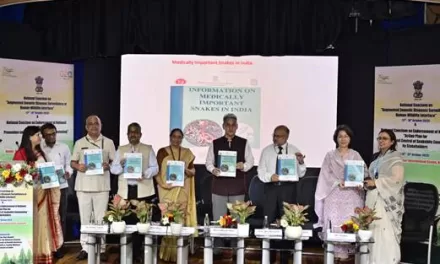Low Vitamin D levels, often referred to as the sunshine vitamin, are essential for bone health but remain a significant concern among women, who are more prone to osteoporosis, arthritis, and other bone-related issues. Experts highlighted this issue on Saturday, emphasizing the need for increased awareness and proactive measures.
Vitamin D plays a crucial role in preventing bone thinning and has anti-inflammatory properties that can protect against arthritis, especially in women. Osteoporosis, characterized by weakened and brittle bones, is often rooted in insufficient levels of Vitamin D. Many individuals rely solely on calcium supplements to support bone health, neglecting the essential role of Vitamin D in calcium absorption.
“We frequently see women with bone problems related to low Vitamin D levels. This essential nutrient is necessary for the absorption of calcium, which keeps bones strong. Unfortunately, many women do not get enough Vitamin D, increasing the risk of osteoporosis and fractures,” said Dr. Akhilesh Yadav, Associate Director of Orthopaedics & Joint Replacement at Max Hospital, Vaishali, in an interview with IANS.
Bone development, repair, and muscular function all depend on Vitamin D. Several factors contribute to Vitamin D deficiency in women, including age, which decreases the skin’s capacity to synthesize Vitamin D, and inadequate sun exposure.
“Maintaining adequate Vitamin D levels is paramount for optimal bone health, yet it remains a pressing concern, particularly among women. This deficiency can lead to serious health implications, with osteoporosis emerging as a significant concern, especially among women post-menopause due to hormonal changes,” noted Dr. Sagar Hingrajiya, Consultant Orthopaedic at Bhailal Amin General Hospital, Vadodara, in his statement to IANS.
Vitamin D acts as a carrier, facilitating the transportation of calcium from the gut to the bones. Without adequate Vitamin D levels, calcium absorption is hindered, making calcium supplementation ineffective in combating osteoporosis.
“Regular monitoring of Vitamin D levels is crucial, particularly for women over 40 who are at higher risk of developing osteoporosis. Persistent low levels of Vitamin D necessitate intervention, often in the form of prescribed supplements tailored to individual needs. However, indiscriminate supplementation without medical guidance can lead to adverse effects, underscoring the importance of seeking professional advice,” Dr. Hingrajiya advised.
To ensure adequate Vitamin D levels, experts recommend spending 10-30 minutes in midday sunlight several times a week, engaging in activities such as brisk walking or gardening, while balancing sun exposure with skin protection. Contrary to common belief, the best source of Vitamin D is not the gentle morning or evening sunlight but rather the midday sun between 10:00 a.m. and 3:00 p.m.
“Due to lifestyle factors and misconceptions, many people fail to capitalize on this prime time for Vitamin D synthesis,” Dr. Hingrajiya noted.
In addition to sun exposure, consuming foods rich in Vitamin D, such as fatty fish, fortified dairy products, mushrooms, and eggs, can help maintain adequate levels.
“Consider Vitamin D supplements if you have limited sun exposure or dietary intake, and consult your doctor for the appropriate dosage. Regularly test your Vitamin D levels, especially if you’re at risk for deficiency,” advised Dr. Yadav.
In summary, ensuring sufficient Vitamin D intake through sun exposure, diet, and supplements is crucial for women’s bone health. Regular monitoring and professional guidance are essential to prevent and manage Vitamin D deficiency and its associated health risks.












